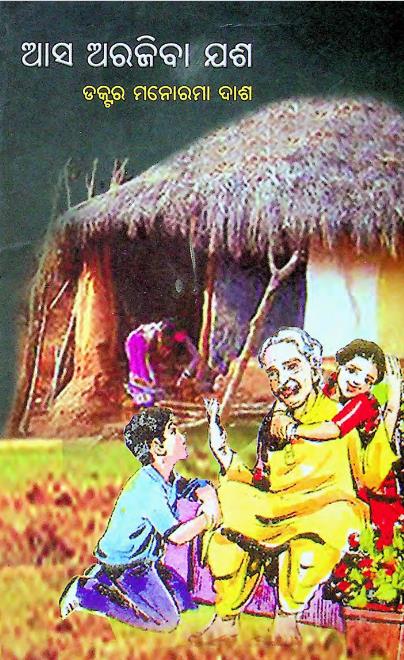In the rich tapestry of Odia literature, one book shines with a vibrant palette of emotions and themes Manorama Das’s poetry collection, Asa Arajiba Jasa, published in 2014. A heartfelt tribute to various aspects of life, this book delves deeply into the essence of human experience, social issues, and personal reflections, all woven together through the mellifluous threads of the Odia language.
Among the standout elements in this remarkable collection is the sub-poem titled Children. In this piece, Manorama Das celebrates the innocence, dreams, and aspirations of children, capturing their essence with sensitivity and eloquence. The poem resonates with readers of all ages, offering a poignant reminder of the purity of childhood and the weight of societal responsibilities that shape their future.
Das’s poem paints vivid imagery that allows readers to envision the joy and playfulness of children, their laughter echoing like sweet melodies through the corridors of life. The rhythm of her verses mimics the playful nature of children, drawing the reader into a world where imagination knows no bounds. Each line carries the weight of nostalgia while also projecting hope for a better tomorrow.
In Children, Das explores the theme of dreams, representing children as the bearers of hope and potential. She emphasizes the dreams that dance in their eyes, dreams that are often nurtured and sometimes stifled by the realities of the world they live in. The poem reflects on the aspirations that bubble in the hearts of youth, mirroring the unadulterated ambition that characterizes early life. Through her words, Das encourages us not just to witness these dreams but to protect and cultivate them, ensuring that the aspirations of the younger generation are given the attention they deserve.
Moreover, the sub-poem addresses the social issues impacting children. Manorama Das does not shy away from the hard truths—poverty, discrimination, and neglect—that threaten the innocence of childhood and the realization of dreams. By illuminating these challenges, she invites readers to reflect critically on the responsibilities of society in shaping a nurturing environment for children. Her poems serve as a call to action, urging us to build a world where every child can thrive, free from the burdens that too often weigh them down.
The language employed by Das in Children is both simple and profound, making her poetry accessible while resonating deeply with her audience. Her ability to convey complex emotions and ideas in such a relatable manner is a testament to her prowess as a poet. The beauty of her verses encourages readers to traverse their own memories of childhood, evoking feelings of warmth, joy, and even melancholy.
Asa Arajiba Jasa stands as a significant work in modern Odia poetry, with Children encapsulating the core themes of hope, aspiration, and societal reflection. Manorama Das’s lyrical prowess, combined with her acute social awareness, not only entertains but also enlightens, making her work a vital part of contemporary Odia literature. As readers, we are left to ponder the futures of our children and the collective responsibility we share in nurturing their dreams.
In conclusion, Manorama Das’s Asa Arajiba Jasa is more than just a poem book; it’s a heartfelt exploration of life that invites us to cherish and protect the visions of the innocent. Through her evocative words, we are reminded that in nurturing the hopes of our children, we hold the key to a brighter tomorrow.
Books Info
| Books name | Asa Arajiba Jasa/ଆସ ଅରାଜିବା ଯଶ |
| Author | Manorama Das |
| No Of pages | 318 |
| Publisher | Arnapurna Publishers |
| Publication | 2014 |
| Printed At | Arnapurna printers |
| Distributor | NA |

